
UK Uncut protest Topshop Tax Dodge
UK Uncut protested outside and briefly inside Topshop and other Oxford Street stores in Philip Green’s Arcadia Group, one of the major companies who together are alleged to dodge £12 billion per year in UK tax.
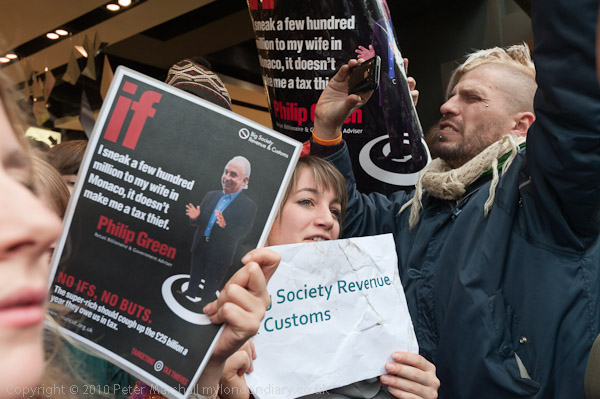
Eleven years on we still haven’t seen effective action by our government against the huge amount of tax evaded and avoided by the wealthy in the UK. Hardly surprising since many of those in government and their friends and supporters benefit greatly from these practices.
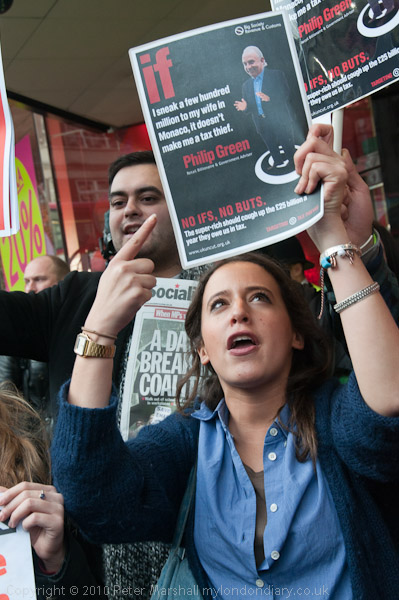
It was the threat by the EU to clamp down on some of these legal fiddles that was a major factor behind the huge funding and lies of the Brexit campaign, something that we are now paying the price for while the billionaires are doing very nicely thank you – and some profiteering hugely from the government’s Covid contracts for their mates.
It was the threats that a centre left government under Jeremy Corbyn might have made some slight changes that, along with his support for Palestinian rights, led to a hugely vitriolic campaign against him by the press and inside the Labour Party.
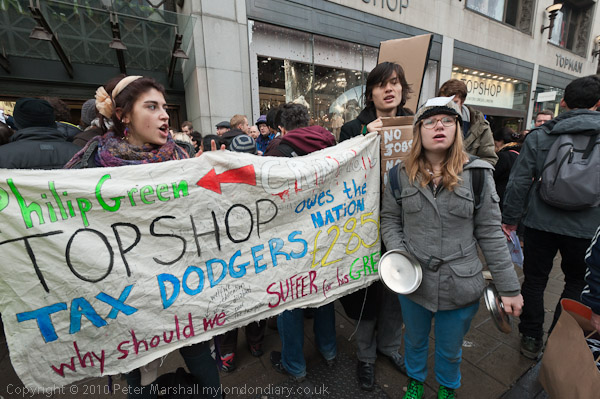
UK Uncut labelled Sir Philip Green, the boss of the Arcadia Group, which included include Topshop, Topman, Dorothy Perkins, Burton, Miss Selfridge Wallis and British Home Stores, as “Britain’s most notorious tax-avoider. While Green himself paid tax on his salary, the companies are owned by a holding company in the tax haven of Jersey, which is owned by his wife and immediate family who live in Monaco, and pay no tax. Arcadia are certainly not the only huge scale tax avoiders – and later the protesters also briefly visited Oxford St branches of two others, Boots and Vodafone.
They also point out that when Green awarded himself a huge dividend payout – £1.2 billion – in 2005, it went through various offshore accounts and tax dodges to his wife’s Monaco bank account. The loss in tax to the UK was £285 million.
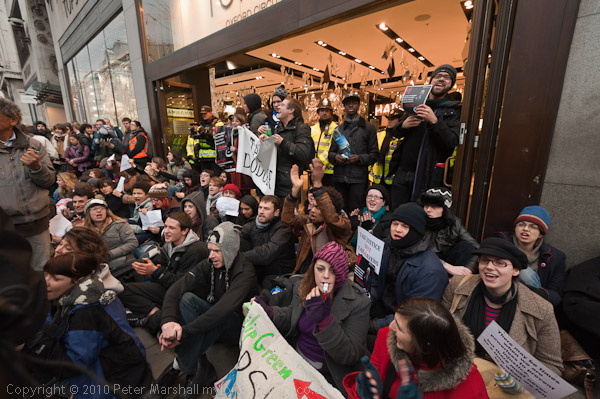
We should have a tax system based on a simple principle. If people or companies make the money in the UK then you should pay tax on it in the UK, and any of the dodges now still used to avoid this should be illegal. At the moment the large accountancy firms are mainly used to aid the avoidance of tax, and they need to be completely re-purposed to with the role of ensuring the correct tax is paid.
Of course it won’t happen. It would destroy a huge part of the business of the City of London, currently the world capital of financial skullduggery and with a curiously intimate connection to our parliament. All we have seen over the 11 years since this protest are a few sweetheart deals with the tax office with some rather token repayments and things are unlikely to change.
More at March for Zero Carbon UK 2030.
March for Zero Carbon Britain 2030
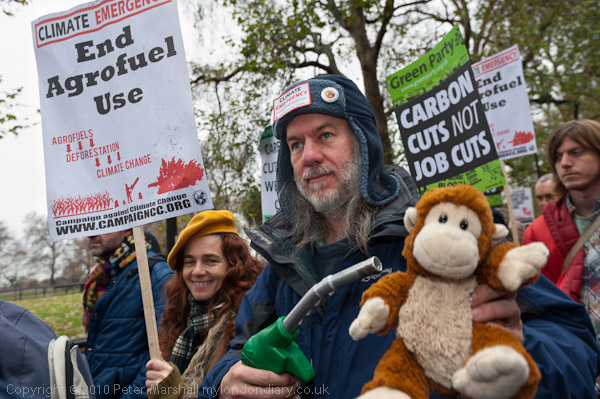
Happening the same day was a march to Parliament by the Campaign Against Climate Change calling for urgent action over climate change including a Zero Carbon Britain by 2030. The march and rally was the seventh annual climate march organised by the CACC, which has spearheaded the campaign to get effective action to meet the climate challenge since its formation, aiming to put climate change at the top of our political agenda as the greatest threat that humanity faces.
While our government still seems shackled to business as usual and only making rather half-heated committments to tackling climate change with the necessary urgency, most of the rest of us are now convinced of the need for real action. From being regarded by many as cranks, CACC are now a small part of a huge mainstream.
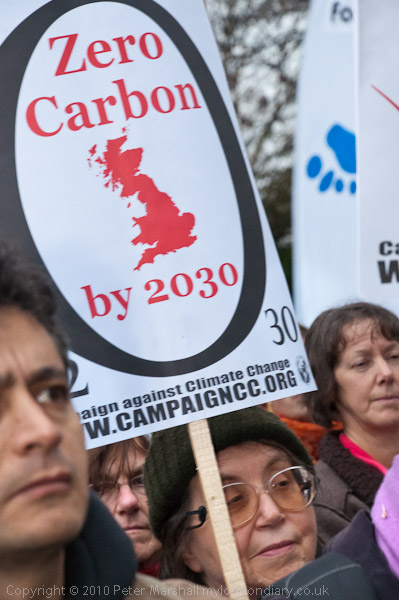
Back in 2010 they were joined on the march largely by other relatively small campaigning groups, including Friends of the Eath, Greenpeace, the World Development Movement, the Climate Rush, the Green Party and many local groups, trade union branches etc. But as with most protests in Britain it was largely ignored by the media, dominated by a press owned by a handful of billionaires.

Things outside government were beginning to move back in 2010, particularly with the publication of an in-depth report compiled for the Centre for Alternative Technology (CAT), ‘Zero Carbon Britain 2030: A new energy strategy earlier in the year, but since then we have seen another largely wasted eleven years.
More at March for Zero Carbon UK 2030.